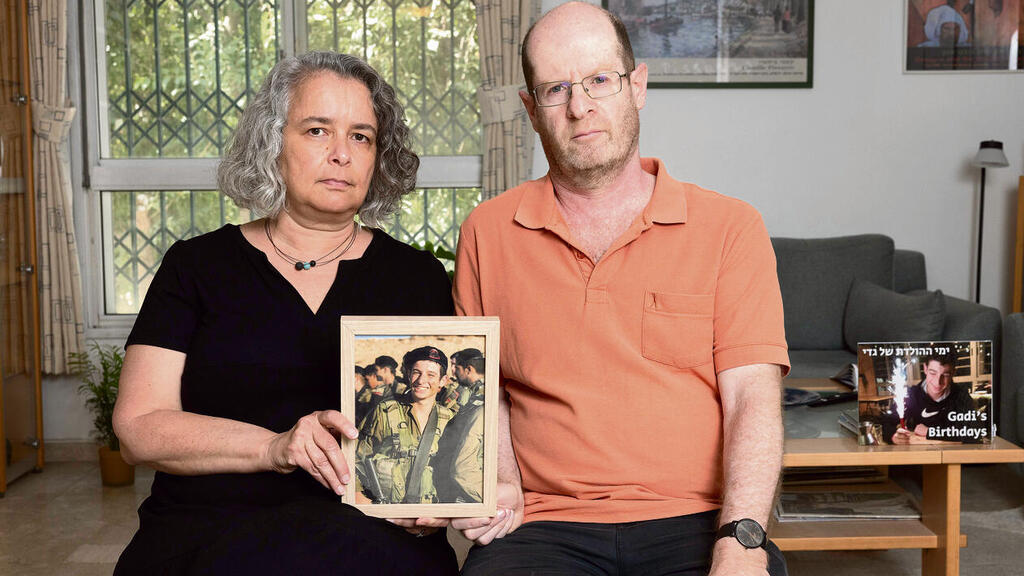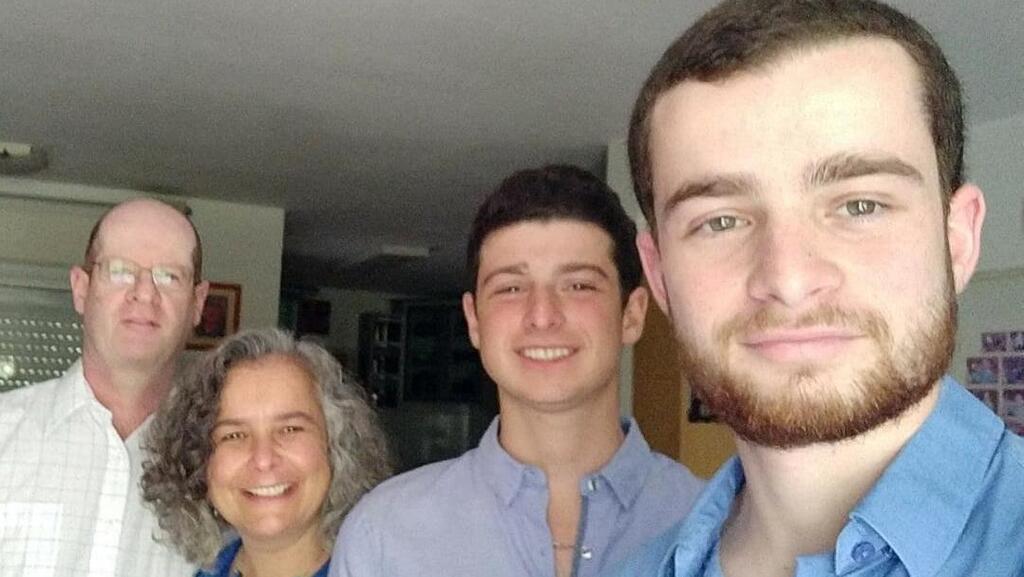On August 10, 2021, Gadi Amit Isaacs enlisted in the IDF and was assigned to the Armored Corps. “At first, Gadi wasn’t aiming for a combat role but once he joined, he pushed himself to succeed despite the challenges,” his parents, Lisa and Richard, recalled proudly. Gadi had already stood out during basic training.
Gadi, 19 at the time of his death, was born and raised in Modi’in to parents who had made aliyah from the UK. The younger brother of Nadav, he was a gifted student fluent in English, excelled in math and science, and loved drawing, writing and playing soccer. “Gadi brought energy and spirit everywhere he went,” his mother said. He died by suicide three years ago.
Now, his bereaved parents are speaking out in an effort to prevent similar tragedies. “Gadi wasn’t suicidal. He wasn’t dealing with PTSD,” they said. “He was a happy, social kid with plans for the future. There needs to be a clear protocol for what happens when a soldier comes home with a weapon and faces a crisis.”
“Gadi always had people around him and made each one feel like his closest friend,” his father added. “He had no thoughts like that before that night,” said his mother.
On Friday, May 20, 2022, Gadi came home for the weekend. He met a friend in a park in Modi’in, carrying a small bag of cannabis. A police patrol spotted them and asked for ID. “You’re a soldier? You’re in trouble,” one officer said, according to his parents. That comment, they say, was the first in a series of failures that led to their son’s death.
Gadi and his friend—who wasn’t in the military—were taken to the police station for questioning. According to the family, police confiscated their phones and did not inform Gadi of his right to a military attorney.
While at the station, Gadi managed to contact his commander, who later checked in and told him they’d talk more in person. “Gadi respected him—they had a good relationship—but it seems even he didn’t know what to do,” said the parents.
After being released, Gadi was told to report to the Military Police Criminal Investigation Division on Sunday morning. He then went to see friends and tried to understand what lay ahead, searching online for answers. “He thought he’d be sent to prison with criminals,” his mother said. They tried calling lawyers that night but it was late on a Friday and no one picked up.
Get the Ynetnews app on your smartphone: Google Play: https://bit.ly/4eJ37pE | Apple App Store: https://bit.ly/3ZL7iNv
Around 2 a.m., Gadi returned home, took his military-issued weapon and walked to a nearby hill. From there, he called ERAN, Israel’s emotional first aid hotline and shared that he was considering ending his life. “He wasn’t sure about it. He didn’t want to do it. He was hoping someone would stop him,” his father said.
The hotline worker recognized the severity of the situation, added another responder to the call, and alerted the police emergency line. “But the dispatcher didn’t even know what ERAN was. How is that possible? She didn’t understand how urgent it was,” said his mother. According to the family, the police sent a patrol to the wrong location. Gadi’s phone was eventually tracked—apparently too late. “They missed the chance to save him,” Richard said.
A month after Gadi’s death, the Military Police contacted the family. A year later, they received the IDF’s legal summary. Two months after that, with the help of attorney and retired Sharon Zagagi-Pinhas, they obtained the raw investigation materials — only to discover that the police’s conduct had not been examined. They requested that such a review be carried out.
“After frightening him like that, they didn’t check whether he had a weapon or where he was going. They took no responsibility,” said his father. His mother noted that the autopsy found no traces of drugs or alcohol in Gadi’s system.
Since then, the Isaacs family has made it their mission to advocate for a clear protocol for soldiers returning home with weapons, especially those in emotional distress. They say a meeting was scheduled with the previous head of the IDF’s Manpower Directorate but was canceled at the last minute. They’re now waiting for a meeting with the current director.
They’re also calling for clear guidelines for commanders facing similar cases, procedures for when police detain a soldier for questioning, immediate involvement of close family and a 24/7 hotline for soldiers with suicidal thoughts. “We can’t bring Gadi back,” said his father, “but the army and the police must learn from what happened so no other family has to go through this pain.”
“The IDF shares in the deep sorrow of the bereaved family and will continue to support them. Their request for a meeting with military officials has been received and will be answered soon,” the military said in a statement.
The Israel Police have yet to respond.





